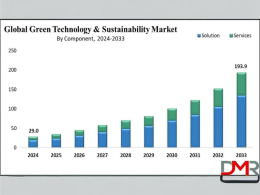“When institutions are transparent about their impact, they earn trust and inspire change,” says Mrs. Tracey McPeake, Head of Sustainability at Oxford College of Business. This philosophy is at the heart of the organisation’s approach to sustainability—and it’s what helped them secure the Gold award for Asia’s Best SDG Reporting at the Asia Sustainability Reporting Awards (ASRA) 2024. As a media partner to ASRA 2024, ESG Post sat down with Mrs. McPeake to explore the challenges, benefits, and future of sustainability reporting, and how Oxford College of Business is aligning education with purpose, accountability, and impact.
Why does your company publish a sustainability report?
At Oxford College of Business, we publish our sustainability report as part of our commitment to transparency, accountability, and responsible leadership. Sustainability is at the core of our values, and by publishing this report, we aim to demonstrate our ongoing dedication to environmental, social, and governance (ESG) initiatives. We believe that in today’s world, stakeholders—be they students, faculty, or the broader community—demand more than just financial results; they seek assurance that the institutions they support are making meaningful contributions to the planet and society.
Publishing our sustainability report allows us to hold ourselves accountable to the commitments we’ve made to sustainable practices and provides a platform for us to communicate the tangible impact of our efforts. It also ensures that our stakeholders can access clear, reliable information about our progress and challenges, fostering a culture of trust and collaboration.
Which part of sustainability reporting did you find to be the most challenging?
The most challenging aspect of sustainability reporting for us has been aligning the non-financial aspects of our reporting—particularly social and environmental factors—with our financial performance. While financial data is straightforward and easier to quantify, measuring social impact, student outcomes, and environmental sustainability often requires both qualitative and quantitative methods. This integration is complex, as it requires collaboration across different departments—academics, facilities management, and HR—to gather relevant data.
Another challenge is data consistency—ensuring that all departments and teams are measuring sustainability indicators using the same standards, and reporting practices. It requires a great deal of internal coordination and a commitment to continuous improvement to refine our systems and ensure the report reflects an accurate and holistic picture of our sustainability performance.
How has your company benefitted from disclosing sustainability performance?
Disclosing our sustainability performance has provided a number of significant benefits. First, it has enhanced our reputation as a responsible educational institution, committed not only to academic excellence but also to the broader global agenda of sustainable development. This has been a key driver in attracting students, faculty, and industry partners who align with our values and want to contribute to a sustainable future.
Additionally, sustainability reporting has improved our internal decision-making processes. By clearly seeing where we stand on key sustainability issues, we can make more informed decisions that positively affect both our operational efficiency and our educational outcomes. Moreover, we’ve witnessed a direct correlation between our sustainability efforts and student engagement. More and more, students are seeking to align themselves with institutions that are committed to ethical practices, and our transparency in reporting our performance has earned us increased student satisfaction and loyalty.
Finally, by focusing on sustainability, we’ve gained a competitive edge within the industry, particularly with organisations that value social responsibility and want to engage with us as a leading institution in business education.
What steps do you take to ensure that your sustainability report is reliable and credible?
Ensuring the reliability and credibility of our sustainability report is a priority at Oxford College of Business. We follow international reporting frameworks such as the Global Reporting Initiative (GRI) and International Integrated Reporting Council (IIRC), which provide globally recognised standards for sustainability reporting. These frameworks guide us in making sure that the report is balanced, transparent, and comprehensive.
We also engage an independent assurance provider to verify the accuracy of our non-financial data, ensuring that our reported achievements are genuine and not just theoretical claims. Furthermore, we ensure that our data sources are consistent, and each department involved in the collection of sustainability metrics undergoes training on best practices for data collection and reporting. This multi-layered approach enhances the credibility of the report, assuring stakeholders that the information presented is both reliable and authentic.
How do you think sustainability reporting will evolve in the next five years?
The next five years will undoubtedly bring significant evolution to sustainability reporting. With growing public interest and stakeholder demand for greater transparency, we expect to see the integration of sustainability reporting with financial reporting becoming the norm. Companies and institutions will no longer see these as separate entities but as interconnected parts of a holistic approach to business strategy.
Additionally, technology will play a crucial role in the future of reporting. We expect to see data analytics, artificial intelligence (AI), and blockchain technologies becoming integral in measuring, analysing, and reporting sustainability performance. These tools will allow for real-time tracking, more dynamic reporting, and even more accurate sustainability metrics.
We also foresee regulatory frameworks becoming more stringent, and as they do, companies and institutions will need to adapt their sustainability practices to meet the growing expectations of both governments and consumers. This evolution will require institutions to invest in innovative practices and develop sustainable infrastructure that supports these new reporting requirements.
At Oxford College of Business, we are committed to staying ahead of these trends by continuously refining our reporting processes and adopting emerging technologies that can enhance our ability to provide accurate and real-time data on our sustainability efforts.
What advice would you offer to other companies striving to enhance their sustainability reporting practices and earn recognition in initiatives like the Asia Sustainability Reporting Awards?
My advice to other companies looking to enhance their sustainability reporting is to embed sustainability into the core of your business strategy. It’s not enough to treat sustainability as an afterthought or a mere compliance exercise; it must be woven into the very fabric of how you operate and grow. This will not only enhance the quality of your reporting but also demonstrate your genuine commitment to making a positive social, environmental, and economic impact.
Additionally, focus on data integrity and transparency. In today’s world, stakeholders can easily discern superficial claims from genuine efforts, so it is crucial to be honest and transparent about your sustainability achievements and challenges. Independent assurance and adherence to international standards will bolster the credibility of your reports.
Finally, don’t be afraid to innovate. Sustainability is a rapidly evolving field, and the companies that lead in this area are those that embrace change and invest in new technologies, new ideas, and new approaches. By staying ahead of the curve and continuously improving your sustainability practices, you can not only earn recognition like the Asia Sustainability Reporting Awards but also position your organisation as a leader in sustainability within your industry.

















